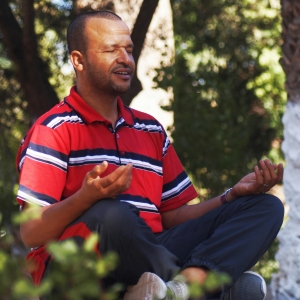The Importance of Self-Care for Caregivers
During the safety demonstration on airplanes, the flight attendants always remind passengers flying with children to apply their own oxygen mask before they place one on their child.
Why? You need to take care of yourself before you can take care of others.
The Challenges of Being a Caregiver for Someone with an Eating Disorder
Being a caregiver for an individual with an eating disorder is not always an easy task. Your primary goal is to look after that person and provide them with an infinite amount of care, love, and support.
It’s important to remember that caregivers also need support and to practice self-care.
10 Self-Care Tips for Caregivers
When you need to take time for yourself, here are a few ways implement the practice of self-care into your daily routine:
1. Check in with yourself:

When caring for someone with an eating disorder, it’s easy to channel all of your energy into them instead of yourself. It’s important to have frequent check-ins with yourself to see how you are holding up and what you need.
When you first wake up in the morning or before you go to bed at night, try journaling to organize your thoughts and feelings.
2. Prioritize taking care of yourself:
Taking care of yourself is not bad or selfish; it’s a necessity. Don’t be afraid to take time for yourself and give yourself a break. Devoting just an hour a day to yourself can make a huge difference.
3. Ask for help:

You don’t ever have to fight any battle alone. You aren’t expected to always know the next step, so if you feel lost, reach out and ask for guidance.
Asking for help is not a sign of weakness; rather, it is a sign of empowerment and confidence. It’s important to have a support system that you can turn to in your own time of need.
4. Don’t be hard on yourself:
As a caregiver, mistakes will be made, but it’s important to remember that it’s ok to make mistakes and to not have the answers. Mistakes allow us to learn and to grow, and they are a necessary part of our day-to-day lives.
If a mistake is worth laughing about, laugh and keep going. We aren’t perfect and we aren’t meant to be perfect.
5. Go out in nature:

Sometimes, just taking a walk around the block or through a local park makes all the difference. Bring some company or go on your own and get lost in the present moment.
Getting fresh air and feeling the sun on your skin brightens your day and re-energizes you. Being outside can remind you that there is more to the world than the daily battles you face.
6. Make something:
Whether it is your bed when you first wake up, a cup of tea, or your favorite craft, make something you can be proud of.
It doesn’t have to be complicated. It’s an opportunity for you to focus on a single task and remind yourself that you are capable of creating something positive and beautiful.
7. List your gratitudes:

One of the best ways to get through a tough time is to write down everything that you are grateful for. These lists can range from something as small as your favorite coffee mug to the people in your life, but it reminds you that there is something good in every day.
8. Take a break from media:
We are exposed to toxic media sources on a regular basis. Whether it is through social media or the news, we are rarely exposed to stories and images that make us feel good.
The news exposes us to stories of heartache and disaster, and social media provides false images that we are constantly comparing ourselves to. Detox yourself from those sources for some time.
Focus on the present moment as opposed to an image that others create of themselves, and focus on the good news.
9. Choose who to spend time with:
You are allowed to be picky about who you spend your time with. Dedicating your time to people who will positively impact you and not fill you with negativity is extremely important.
Additionally, sometimes the best person to be around when you need to practice self-care is yourself. Spending time with yourself helps you learn more about the incredible person you are.
10. Focus on your breath:

Meditation can be one of the most challenging but rewarding tasks. Even if it is just for five minutes, removing yourself from your stressors and focusing on nothing but your body and mind in the present moment can make a huge difference.
It’s a chance to hit the reset button and bring back your awareness so that you can continue to help yourself and help others
Find Help and Support
Are you concerned you might be struggling with an eating disorder? Take our confidential screening tool.
Are you looking for an eating disorder treatment provider? Find treatment in your area or online.
Are financial barriers preventing you from seeking the support you need? Learn more about free and low cost support options to connect with others and provide tools to promote recovery.




